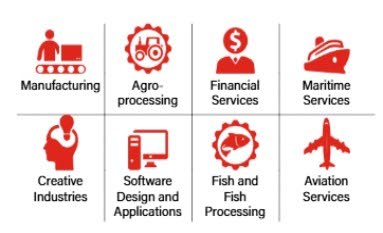More than $2.6 million has been awarded to 22 businesses located in Western Australia’s South West under the Timber Region Transition Grant....
Vous n'êtes pas connecté
- English
- Français
- عربي
- Español
- Deutsch
- Português
- русский язык
- Català
- Italiano
- Nederlands, Vlaams
- Norsk
- فارسی
- বাংলা
- اردو
- Azərbaycan dili
- Bahasa Indonesia
- Հայերեն
- Ελληνικά
- Bosanski jezik
- українська мова
- Íslenska
- Türkmen, Түркмен
- Türkçe
- Shqip
- Eesti keel
- magyar
- Қазақ тілі
- Kalaallisut ; kalaallit oqaasii
- Lietuvių kalba
- Latviešu valoda
- македонски јазик
- Монгол
- Bahasa Melayu ; بهاس ملايو
- ဗမာစာ
- Slovenščina
- тоҷикӣ ; toğikī ; تاجیکی
- ไทย
- O'zbek ; Ўзбек ; أۇزبېك
- Tiếng Việt
- ភាសាខ្មែរ
- རྫོང་ཁ
- Soomaaliga ; af Soomaali
Rubriques :
 Maroc - NEWSDAY.CO.TT - A la Une - Hier 06:05
Maroc - NEWSDAY.CO.TT - A la Une - Hier 06:05
MSME business grants made easy
Marc Sandy Grant funding opportunities for micro, small, and medium-sized enterprises (MSMEs) are significant, particularly through the Ministry of Trade and Industry (MTI), which has allocated $65 million from September 2023 to March 2024 to support their growth. Key funding options include grants for acquiring machinery, enhancing research and development, achieving international certifications, and supporting export activities. Let’s navigate the resources available to MSMEs to foster their growth and success. The growth and development of MSMEs are critical to the country's economic diversification and sustainability. To facilitate this, the government has implemented various financial support mechanisms. The MTI has an extensive grant and incentive scheme that offers considerable support to MSMEs. Exploring the key opportunities available can reveal valuable resources for these businesses. Grant Fund Facility The Grant Fund Facility provides new opportunities to develop small and medium-sized enterprises (SMEs) that produce high-value-added products and services and can compete in export markets. With grant funding, companies can acquire machinery and equipment and, in some instances, software, tools, and patents for new technology. SMEs (sole proprietors, partnerships, or companies) wholly owned by nationals and operating in TT are eligible. They must be export-oriented, producing an import substitute or identified to support economic diversification. These SMEs must be registered and in operation for at least two years. Specific industries are eligible. Up to $250,000 is given per beneficiary to finance 50 per cent of the acquisition cost. Steelpan Manufacturing Grant Fund Facility This facility provides new machinery, equipment, software, tools, and raw materials, as well as training to aid local steelpan manufacturers. In June 2023, the government expanded the facility to include manufacturers of sticks, stands and cases, as well as selected costs related to the export promotion of steelpans and the adoption and use of e-commerce platforms and online payment systems for the sale of steelpans. [caption id="attachment_1139890" align="alignnone" width="500"] Marc Sandy -[/caption] Steelpan manufacturers, tuners, and manufacturers of steelpan accessories (sticks, stands, and cases) are eligible. Sole proprietors, partnerships or companies registered and operating in TT and wholly owned by nationals are eligible. Grants are for acquiring new machinery, equipment, software, tools, raw materials and training. Businesses must be in operation for a minimum of two years. Up to a maximum of $250,000 per tranche, not exceeding $1 million per entity, is offered. Research and Development Fund (RDF) The RDF financially supports the non-energy manufacturing and services sector. It aims to stimulate and support investment in new and advanced technology and innovation to enhance competitiveness for enterprises in these sectors. The RDF is open to non-energy manufacturing and services members, sole proprietors, businesses, partnerships, and companies established in TT and in operation for at least one year. Up to $1 million per beneficiary is accessible with the following limits for three phases: • Phase one (feasibility) – Up to 70 per cent of the total cost of a maximum of $100,000 over six months. • Phase two (implementation) – Up to 50 per cent of the total cost of a maximum of $750,000 within a maximum two-year period. • Phase two (commercialisation) – Up to $150,000. International Certification Fund This fund provides financial assistance to the manufacturing sector (including agro-processing) for a range of applicable international standards to boost the production of non-energy exports and contribute to import substitution. Funding is provided through grants and partly covers the costs associated with meeting recognised international standards. Sole proprietors, partnerships or companies wholly owned by nationals and registered and operating in TT are eligible. Firms that demonstrate the potential to develop a sustainable export base; firms established for a minimum of one year, with supporting financials; firms engaged in the production of non-energy exports, with export sales less than US$4 million; and firms contributing to import substitution with sales turnover of less than $25 million can apply. Up to a limit of $500,000 per beneficiary is available to cover the costs associated with meeting recognised international standards. Co-Financing Facility This facility was established to provide conditional financial support to aid businesses. Financial support takes the form of a portion of a pre-approved investment, purchase, cost, or expense incurred in reaching selected export markets. Locally-owned companies operating for at least one year and involved in non-extractive energy manufacturing and services are eligible. Co-financing is available for: • Product and/or company registration in overseas markets • Intellectual property registration in overseas markets • Product testing • Shipping of samples • Translation and interpretation of export-related documents • Trade show participation • Label design modification • First-time website development for current/potential exporters • First-time website development and e-commerce functionality for current/potential exporters Small companies (generating less than or equal to $8 million in annual turnover) can access 50 per cent to a limit of $60,000. The funded portion will be paid directly to small companies' suppliers. Medium-sized companies (generating between $8 million and $15 million in annual turnover) are entitled to 50 per cent up to a limit of $55,000. Large companies (generating over $15 million in annual turnover) can secure 50 per cent up to a limit of $50,000. MYDNS Grant In addition to the MTI’s grant and incentive scheme, the Ministry of Youth Development and National Service also offers micro and small enterprise development grants. These grants are administered by the National Entrepreneurship Development Co Ltd and include training, business advisory services, and mentorship. Specifically, business advisory services and mentorship cover the development of a viable business plan in collaboration with business advisers, as well as initial advisory discussions followed by mentorship sessions. The maximum amount provided through this grant is $20,000. Enterprise Assistance Grant Programme (Tobago) This programme is an initiative to assist in jump-starting Tobago businesses. The grant is offered to entrepreneurs establishing small businesses. It is also for people who have already established small businesses but require additional support to expand or improve their products or services. Applicants can access up to $25,000 in grant funding. The targeted sectors include: • Small-scale garment manufacturing and tailoring • Preparation of baked goods • Marketing and advertising services • Small-scale farming and agro-processing • Manufacturing • Motor vehicle repairs (not for stocking spare parts for resale) • Landscaping and horticulture • Personal healthcare [caption id="attachment_1139891" align="alignnone" width="1024"] -[/caption] The various grant funding options available for MSMEs are essential for fostering innovation and growth within the sector. By leveraging these resources, MSMEs can enhance their competitive edge, expand their operations, and contribute significantly to the economy. As the landscape of financial support continues to evolve, businesses must remain informed and proactive in exploring these funding opportunities to ensure sustainable development and long-term success. Tracking success: Evaluating grant impact and outcomes Without effective monitoring and evaluation, the impact of grants on entrepreneurs cannot be truly assessed. Ultimately, the desired outcome is to ensure that grant-funded enterprise development projects are converted into high-value products and services that capture and sustain local and export market share. Metrics such as growth in asset value, sales turnover, profitability and export revenue gains can be used, as well as before and after comparative analysis at both the company and the industry level (where applicable). Such analysis can have telling implications on the “what”, “how”, and “to whom” these grants are issued to ensure that macro-level growth objectives are attained. Full details of MTI’s Grant and Incentive Scheme can be accessed at https://tradeind.gov.tt/quo_storage/2024/06/Grants-and-Incentives2024.pdf Marc Sandy is the manager, Trade & Business Development Unit, TT Chamber of Industry & Commerce. The post MSME business grants made easy appeared first on Trinidad and Tobago Newsday.
Articles similaires
COSATU expresses concerns over the implementation of Ramaphosa's State of the Nation Address
The Congress of South African Trade Unions (COSATU) said in a statement on Thursday that it had reservations about the implementation of President...
Ralph Nader: Trump/Musk Dictatorship Is Galvanizing The American People’s Resistance – OpEd
Madmen Trump and Musk are moving with warp speed to illegally and dictatorially wreck America and enrich themselves in the process. Forget the use...
CSIRO Launches Graphite R&D Grant Opportunity
Australia’s national science agency, CSIRO, has launched a new research and development grant opportunity to accelerate the growth of the...
Five Myths About The Corporate Transparency Act – Analysis
By Nate Sibley The bipartisan Corporate Transparency Act (CTA), passed in 2021 during the first Trump administration, mandated the creation of the...
TAFE Queensland training the trainers
TAFE Queensland and Manufacturing Skills Queensland (MSQ) have partnered to deliver the Industry Trainer Program, a key initiative in MSQ’s...
Ukraine’s presidential office outlines plans to compensate for frozen USAID programs
Grant funds previously provided to Ukraine through the United States Agency for International Development (USAID) will be replaced through state and...
'Today wasn’t her turn to take lunch to school': Is the current Child Support Grant enough to sustain a child?
A 10-year-old grade 4 student lay on the sick bed after passing out in the classroom.“What did you eat today?” asked the staff member assisting...
Post-Secondary Institutions Collaborating to Address Canada’s Productivity Crisis
Prime Highlights: The Government of Canada has awarded $24 million in Lab to Market funding to support the initiative, administered by NSERC, CIHR,...
The Emerging Of Close Produce Model In Global Manufacturing – Analysis
By Zhao Zhijiang The impact of the wave of de-globalization on global trade is most directly felt, but its influence on the production and layout...
Les derniers communiqués
-
Aucun élément



